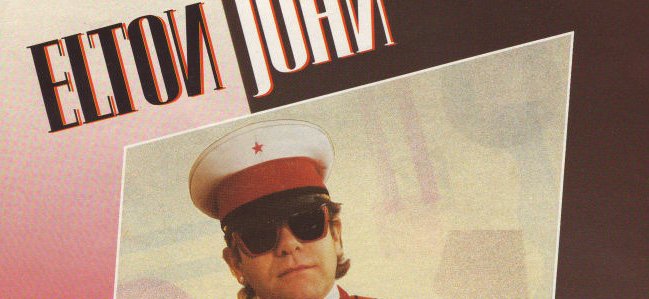3 Count: Nikita Knows

Have any suggestions for the 3 Count? Let me know via Twitter @plagiarismtoday.
1: Elton John Convinces Judges About Uniqueness of His Love Song
First off today, Eriq Gardner at The Hollywood Reporter Esquire reports that Elton John and his writing partner Bernie Taupin have won their case against another songwriter, Guy Hobbs, who claimed that John’s song “Nikita” was an infringement of his song “Natasha”.
Hobbs made the claim that Nikita used themes and elements from his earlier work but a lower court dismissed the lawsuit saying that the similarities were not enough to make a copyright infringement claim. Hobbs appealed to the Seventh Circuit Court of Appeals and that court has upheld that decision.
According to both courts, the elements that the two works share are mere ideas and are not protected under copyright. As such, the court says it does not have to rule on other copyright issues and can dismiss the case out of hand.
2: Woody Allen’s Midnight in Paris Cleared of Copyright Infringement
Next up today, in other news involving failed copyright lawsuits, Jordan Rowe at The Guardian reports that Woody Allen has won a battle against the estate of William Faulkner, which had sued him claiming that a nine-word quote from Faulkner’s “Requiem for a Nun” had been used in an infringing way in Allen’s “Midnight in Paris”.
The case was dismissed on fair use grounds with the judge saying that many elements of the use, including its transformation and the lack of harm to the market for the original work, tipped the scales in the favor of a fair use argument.
The estate has said that it is looking into its legal options and may appeal the ruling.
3: T Rex Frontman’s Son Sues Music Publisher
Finally today, the BBC is reporting that the son of T Rex frontman Marc Bolan is suing Westminster Music Limited for copyright infringement, alleging that the company did not renew their contract to use Bolan’s songs and continued to distribute them.
Bolan, whose real name was Mark Feld, died in 1977, when his son was just a few years old. That son now claims the publisher failed to timely provide his father that it wished to extend the term of their deal and, as a result, he is now the sole heir to them.
Westminster did register the songs with the U.S. Copyright Office but Feld claims that the registration was false. Under pre-1978 copyright law, if an author dies within the first 28 years of a song’s history, the extended rights, the remaining 67 years, automatically belong to the author’s heirs, in this case his son.
Suggestions
That’s it for the three count today. We will be back tomorrow with three more copyright links. If you have a link that you want to suggest a link for the column or have any proposals to make it better. Feel free to leave a comment or send me an email. I hope to hear from you.
Want the Full Story?
Tune in every Wednesday evening at 5 PM ET for the live recording of the Copyright 2.0 Show or wait and get the edited version Friday right here on Plagiarism Today.
The 3 Count Logo was created by Justin Goff and is licensed under a Creative Commons Attribution License.
Want to Reuse or Republish this Content?
If you want to feature this article in your site, classroom or elsewhere, just let us know! We usually grant permission within 24 hours.
